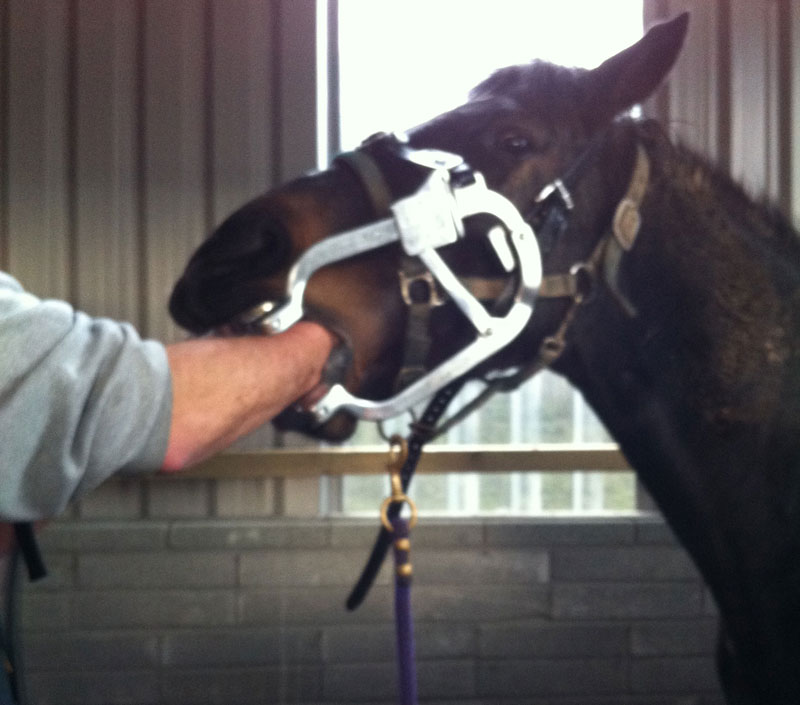Horses need dental care because horses’ teeth grow continuously until some time between the ages of 25 and 30 and the way in which they grow and are worn down must be kept in check to ensure smooth movement of their mouth.
Grass, their natural food, contains silica which is abrasive and constantly wears down the horse’s teeth. Also horses which graze on grass are constantly changing their jaw position as they reach down to graze and then raise their head to chew. Therefore a horse living on grass will be more likely to naturally polish off the surfaces of their molars into a level surface.
However most horses do not live on grass alone, but are fed other forms of forage and hard feeds. This affects how a horse grinds its food and the wear on its teeth. Less abrasive forages and grains often means that the surfaces of the teeth do not get polished off evenly.
Raised edges may appear along the edges of the molars; typically along the outside of the upper set and the inside of the lower set.
These points can be quite razor-like. The sharp points can cut into a horse’s cheeks when they chew and cause soreness where a bit or head-collar pushes the cheek against a sharp tooth.
Signs of dental problems and what to look out for
- If a horse starts to loose condition for no apparent reason or is not putting on condition despite receiving adequate feed
- Excessive salivating when eating
- Eating slowly and with effort, continuously dropping bits of half chewed food
- Other behavioral characteristics suggesting tooth problems may include unusual fussing with the bit and avoidance of bit contact
- Irritation when put into a dropped noseband
- Head tucking or head tossing and poor self-carriage
- Not wanting to have his face and muzzle handled
How to ensure good dental care for your horses
- Get a vet or qualified equine dentist, who has been referred by a vet, to check your horse’s teeth at least once a year
- With horses aged 16 or over, increase the checks to twice a year
- Horse’s teeth continue to grow throughout their lives so once a tooth is lost the corresponding tooth on the opposite jaw will continue to grow unchecked. In this situation, the remaining tooth must be rasped regularly
- Horses’ teeth wear down with age. Wear must be kept even with regular rasping to ensure efficient feeding
- Carry out regular checks for tartar, abscesses and gum disease
- A healthy diet for your horse will help keep his teeth strong.
Remember good dental care is essential for a horse’s well being. Teeth should be checked at least annually.
To learn more about equine dentistry, take a look at this video.
For more handy horse care tips, check out our other blog posts.


Leave a Reply